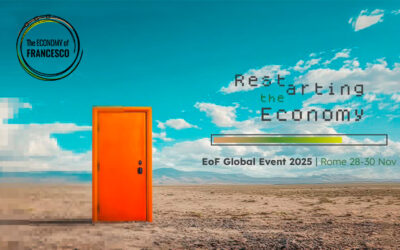
Dr Gianni Caso (on the rigth) receiving the honour
Communion and Law is an attempt to discern those aspects of the spirituality of unity coming from the charism of Chiara Lubich that have significance for the world of law and let them inspire new avenues of research and new paradigms. Dr Caso, honorary Assistant President of the Italian Court of Cassation, is working at the moment in a similar field within the Focolare Movement. He has recently come back from a visit to Guatemala and Colombia where he was able to deepen his understanding of these countries. While there he was the recipient of an honour conferred by the Colombian Parliament upon the Focolare Movement. We asked his reflections.
What can the experience of Communion and Law give to societies struggling with difficult issues to do with the rule of law?
‘The role of Communion and Law in relation to what happens socially, economically and politically in such countries is twofold: it seeks to transform these areas of life and it seeks to rethink the dominant culture and its interrelationship with the society’s economic, political and legal order.
The first of these two things came into light in Guatemala. Here they asked us ideas on how to bring into effect the rule of law so that it could transform a society deeply troubled by injustice and without any guarantee of protection for citizens and for communities.
The second aspect came into light in Colombia, where there is a clear link between a society’s development of an individualistic culture and its economic, political and legal system, since individualistic culture affirms an economic order based on private profit and, at the same time, that kind of economic order promotes an individualistic culture. The consequence is a deeply divided and unequal society, with the formation of a class of rich people together with the exclusion of a large part of the population from positions of responsibility in economic, political and cultural life.’
If things are so tough and challenging, are there any positive signs or chances for change?
‘The strongest impression I had was when I compared the social and cultural situation of those Latin American countries with the current situation in Italy, and generally in Europe. In Latin America there is an extremely powerful “culture of life”. Even though socially things are very difficult because of the tremendous social inequality, leading to poverty and exclusion for a large part of the people, there is a real sense of the desire and the joy of living. This is caused by the huge numbers of children and young people generally (parents, in general, even though they are poor, have great love and care for their children). Here in Europe it looks as if we’re dominated by a “culture of death”: not many children, few young people, an ageing society, many “single” people, closed in ourselves, depressed and lack of zest for life. All of which is clear to those who visit those countries and come back here.’




0 Comments